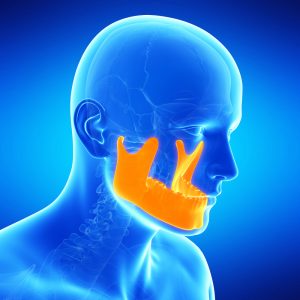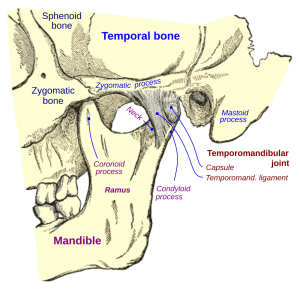TMJ nerve damage symptoms can often be mistaken for regular jaw discomfort or tension headaches, but they may signal a more serious underlying issue. The temporomandibular joint (TMJ) plays a vital role in daily functions like chewing and speaking, and when nerves in this area become irritated or compressed, it can lead to persistent pain, tingling, or even facial numbness. Recognizing these warning signs early is crucial to preventing long-term complications. In this article, we’ll explore the most common TMJ nerve damage symptoms, what causes them, and when it’s time to seek professional care.
Key Takeaways
- TMJ nerve damage creates sharp, electric, or burning pain instead of dull aches
- Facial numbness and altered sensation indicate nerve compression
- Nerve symptoms signal moderate to severe TMJ damage
- Early specialist evaluation prevents permanent nerve injury
- Orofacial pain specialists diagnose and treat nerve-related TMJ cases
How TMJ Disorders Lead to Nerve Damage
The trigeminal nerve is the main sensory nerve of your face. It has three branches that supply feeling to your forehead, cheeks, jaw, and teeth. This nerve runs close to your temporomandibular joints.
When your TMJ develops problems, several things can put pressure on nerve tissue. A displaced disc can compress nerve branches. Chronic inflammation spreads to nerve pathways. Arthritic bone changes can narrow the spaces through which nerves pass.
Nerve pain feels different from muscle or joint pain. Muscle pain is dull and achy. Joint pain is tender and worse with movement. Nerve pain is sharp, electric, or burning. It can occur without moving your jaw and often spreads beyond the joint area to your face, teeth, or ear.
7 Signs Your TMJ Has Caused Nerve Damage
1. Facial Numbness or Tingling
Your face feels numb or tingly, as if it's experiencing pins and needles. The sensation may affect your cheek, jaw, or the area around your mouth. The numbness may come and go throughout the day or remain constant. This symptom indicates that pressure on the trigeminal nerve is disrupting standard sensation signals.
2. Electric or Shooting Pains in Face or Jaw
You experience sharp, sudden jolts of pain that feel like electrical shocks. These pains are brief but intense. The attacks may trigger when you touch your face, chew food, talk, or brush your teeth. This type of pain is distinctly different from the dull ache associated with typical TMJ discomfort.
3. Altered Sensation When Touching Your Face
Parts of your face feel different to touch. Some areas may be hypersensitive to the sensation of light touching. Other regions have reduced feeling. You notice the difference when washing your face, applying makeup, or shaving. This means the nerve signals from your skin aren't processing normally.
4. Burning Sensations in Mouth or Face
You experience a persistent burning sensation in your mouth, tongue, or face. The sensation is uncomfortable and constant, with no visible cause, such as a sore or infection. The burning may affect your tongue, the roof of your mouth, your inner cheeks, or your lips. This symptom can indicate nerve irritation or small fiber neuropathy. The condition shares features with burning mouth syndrome, though the underlying cause is different.
5. Tooth Sensitivity Without Dental Problems
Your teeth hurt or feel sensitive, but your dentist examines your teeth and finds nothing wrong. There are no cavities, no cracks, no gum recession to explain the pain. This happens because the trigeminal nerve supplies sensation to your teeth. When the nerve becomes irritated due to TMJ problems, it can cause tooth pain even if your teeth are healthy. We often see this in our practice and refer to it as an atypical toothache.
6. One-Sided Facial Weakness or Heaviness
One side of your face feels heavier or more difficult to move. Your smile may look slightly uneven. One eyelid might droop more than the other. This symptom indicates that the motor branches of the trigeminal nerve are involved.
7. Persistent Ear Pain with Normal Hearing Tests
Your ear hurts, but you don't have an ear infection. Your hearing is fine. An ENT specialist examines you and finds nothing wrong. The trigeminal nerve has branches near your ear. When this nerve becomes irritated from TMJ problems, it refers pain to your ear.
TMJ Pain vs. TMJ Nerve Damage: Key Differences
Regular TMJ pain is dull and achy. It worsens when you move your jaw to chew, talk, or yawn. The discomfort remains localized to the area around your jaw joint. Rest usually helps.
TMJ nerve damage creates different symptoms. The pain is sharp, electric, or burning. It can occur without moving your jaw. The sensation spreads beyond your joint to your face, teeth, or ear. You may experience numbness or altered sensation. The symptoms persist more frequently and do not improve consistently with rest.
If your symptoms match the nerve damage pattern, you need evaluation by an orofacial pain specialist.
What Causes TMJ-Related Nerve Damage?
Several factors can lead to nerve damage in TMJ disorders. Severe disc displacement compresses nerve tissue. Chronic inflammation spreads to nerve pathways. Jaw joint arthritis causes bone changes near nerves. Trauma to your jaw or face can directly affect nerve structures. Prolonged teeth grinding creates constant pressure.
Most cases involve multiple factors working together. A patient may experience disc displacement, chronic inflammation, and teeth grinding, all of which can contribute to nerve damage.
When to See an Orofacial Pain Specialist
Seek care if you experience facial numbness lasting more than a few days, electric or shooting pains in your face or jaw, or pain that doesn't respond to typical TMJ treatments. Symptoms that interfere with eating, speaking, or daily activities need professional care.
Orofacial pain specialists have specific training in diagnosing nerve-related facial pain. We can determine if your symptoms stem from TMJ nerve damage or other conditions like trigeminal neuralgia. Early diagnosis prevents progression and improves treatment outcomes.
Get Help for TMJ Nerve Damage
TMJ nerve damage can cause symptoms that extend beyond typical joint pain. Sharp or electric pains, facial numbness, burning sensations, and unexplained tooth sensitivity all point to nerve problems. These symptoms require specialist evaluation.
At Raleigh Facial Pain, we specialize in diagnosing and treating complex TMJ cases with nerve involvement. Our team uses a comprehensive approach to address both joint dysfunction and nerve irritation. We understand how jaw problems affect the trigeminal nerve.
If you recognize these symptoms of nerve damage, schedule an evaluation. We'll determine if your symptoms indicate TMJ nerve damage and explain your treatment options. Visit our Trigeminal Nerve Damage page to learn more about our approach or contact our team to get started.
Frequently Asked Questions
Can TMJ cause permanent nerve damage?
Most cases of TMJ-related nerve damage are reversible with proper treatment. However, prolonged compression can cause lasting damage. Nerves that remain compressed for months or years may not recover fully. Early intervention offers the best chance for complete recovery.
How long does nerve healing take after TMJ treatment?
The timeline varies depending on the severity of the damage. Mild cases may improve within weeks to months. Severe cases take longer, often several months to over a year. Nerves heal slowly compared to other tissues.
Will TMJ nerve damage go away on its own?
Nerve damage is unlikely to resolve without addressing the underlying TMJ problem. Conservative care and specialist treatment are usually needed. Ignoring symptoms risks permanent changes in nerve function.
What's the difference between TMJ pain and trigeminal neuralgia?
Both conditions involve the trigeminal nerve, but they have different causes. Trigeminal neuralgia typically results from a blood vessel pressing on the nerve near the brainstem. The pain is usually one-sided, extremely sharp, and triggered by even the lightest touch. TMJ nerve damage develops from jaw joint problems. Patients typically experience other jaw symptoms, such as clicking, limited opening, or joint tenderness.
Can teeth grinding cause nerve damage?
Severe, prolonged teeth grinding can contribute to nerve damage. The constant pressure damages your jaw joint over time. As the joint deteriorates, inflammation and structural changes can affect nearby nerve tissue.



